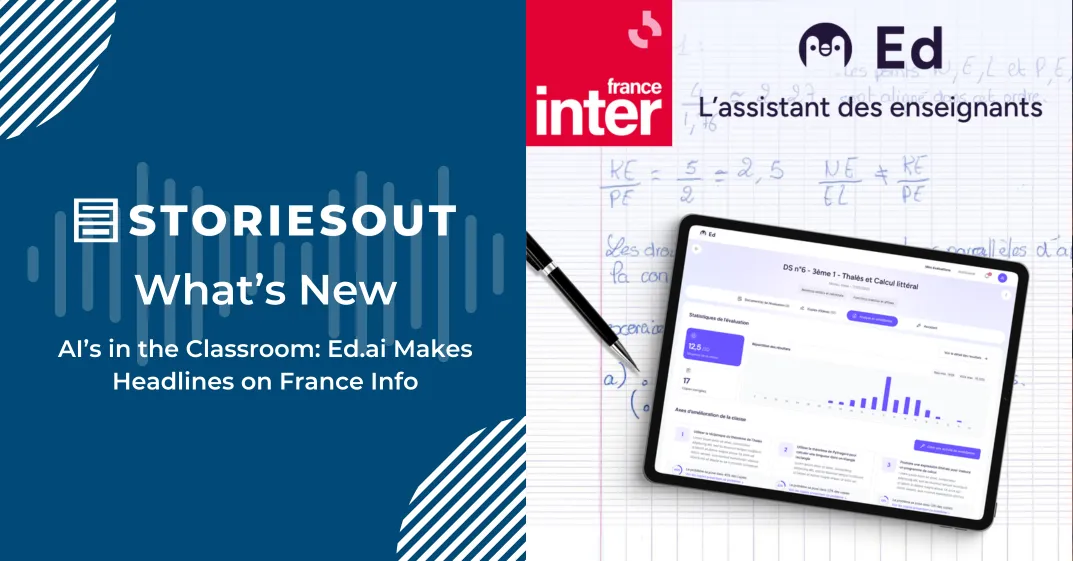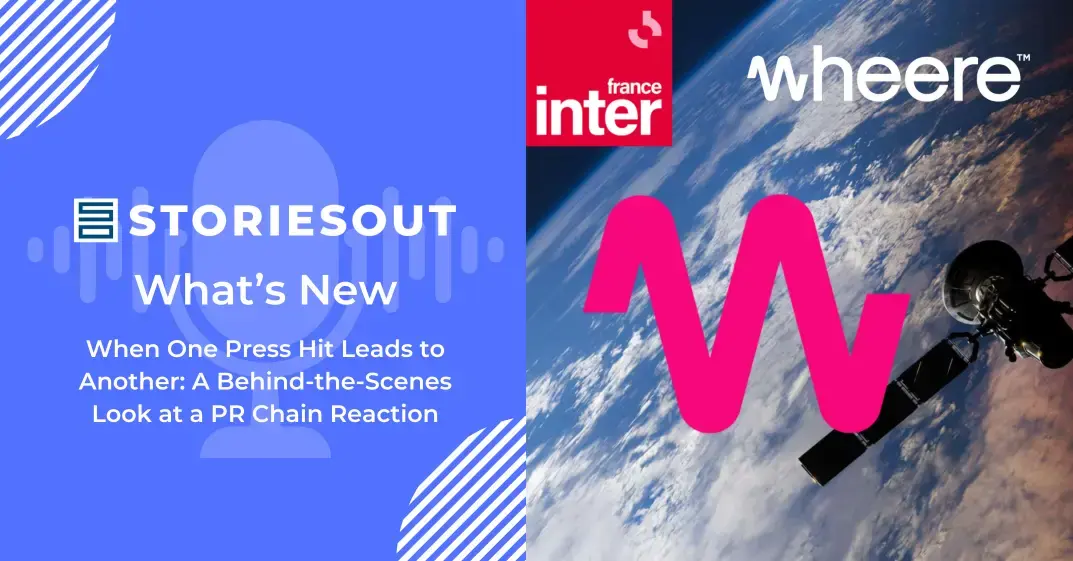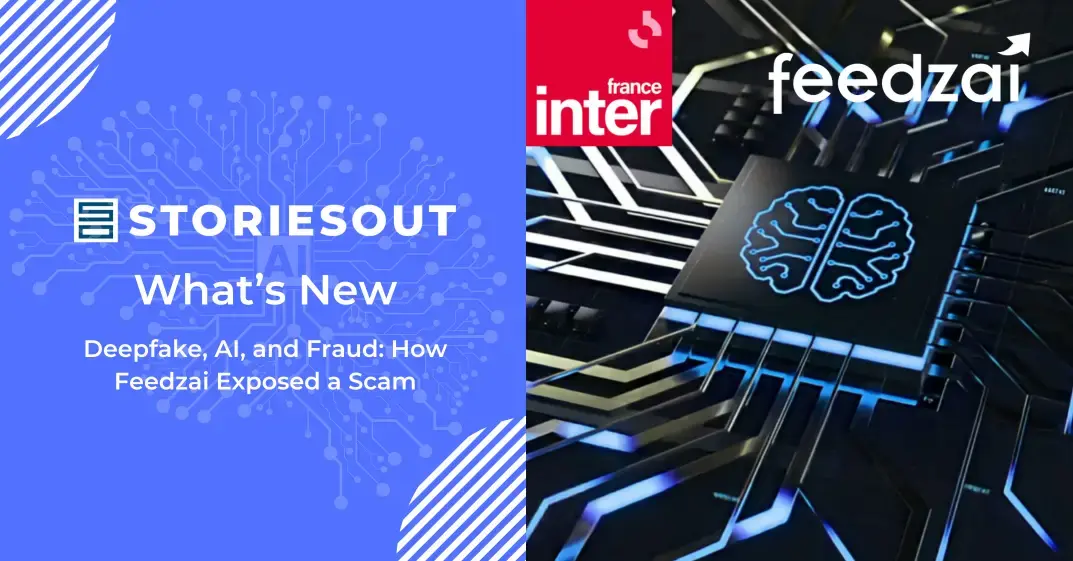7 infos cette semaine ! Voici le choix des attaché·es de presse StoriesOut
Intelligence artificielle : l’UE donne son feu vert à l’IA Act Elles pensaient faire le bien, mais cela a empiré les choses : pourquoi les applications de santé mentale sont sous surveillance Les influenceurs bien-être qui ont alimenté la désinformation pendant la pandémie, ciblent désormais une nouvelle crise Discriminations en entreprise : comment en finir concrètement avec les micro-agressions du quotidien Les outils d’IA qui pourraient vous empêcher d’être embauché ️ Devrait-on construire davantage de maisons britanniques en utilisant de la paille ? Mark Zuckerberg aux familles d’enfants exploités : ‘Je suis désolé pour tout ce que vous avez traversé’
7 news stories this week, chosen by the StoriesOut media consultants
Artificial Intelligence: EU gives the green light to the AI Act They thought they were doing good but it made people worse’: why mental health apps are under scrutiny Wellness influencers fueled pandemic misinformation. Now they’re targeting another crisis Discrimination in the workplace: how to put an end to everyday microaggressions The AI tools that might stop you from getting hired ️ Should more British homes be built using straw? Mark Zuckerberg to families of kids exploited by social media: ‘I’m sorry for everything you’ve been through’
Intelligence artificielle : l’UE donne son feu vert à l’IA Act
‘They thought they were doing good but it made people worse’: why mental health apps are under scrutiny
Wellness influencers fueled pandemic misinformation. Now they’re targeting another crisis
Discriminations en entreprise : comment en finir concrètement avec les micro-agressions du quotidien
The AI tools that might stop you getting hired
Should more British homes be built using straw?
Mark Zuckerberg to families of exploited kids: ‘I’m sorry for everything you’ve been through’
#1. Intelligence artificielle : l’UE donne son feu vert à l’IA Act
Les Vingt-Sept ont « confirmé à l’unanimité » l’accord politique trouvé en décembre dernier entre les Etats membres et les eurodéputés. Une législation inédite au niveau mondial pour réguler l’IA qui avait suscité de longs mois de débats.
[Article publié le 2 février 2024 à 16H25 et mis à jour à 18H20] C’est la première loi sur l’intelligence artificielle et elle a obtenu un feu vert de la part de l’Europe. Plus précisément, les 27 Etats membres de l’UE ont approuvé ce vendredi une législation inédite au niveau mondial pour réguler l’IA, a annoncé la présidence belge du Conseil de l’UE.
Intelligence artificielle : l’UE donne son feu vert à l’IA Act
#2. ‘They thought they were doing good but it made people worse’: why mental health apps are under scrutiny
As experts worry over privacy issues, ineffectiveness and even harm, the UK is looking at whether the plethora of digital mental health tools need regulating
“What if I told you one of the strongest choices you could make was the choice to ask for help?” says a young, twentysomething woman in a red sweater, before recommending that viewers seek out counselling. This advert, promoted on Instagram and other social media platforms, is just one of many campaigns created by the California-based company BetterHelp, which offers to connect users with online therapists.
#3. Wellness influencers fueled pandemic misinformation. Now they’re targeting another crisis
When wildfire ripped through Hawaii’s Maui last August, the impact was devastating: a whole town reduced to ashes, more than 100 lives lost. The inferno was described as the “largest natural disaster in state history.”
But some on Instagram suggested, without evidence, there was something much more nefarious at play.
Wellness influencer @truth_crunchy_mama told her 37,000 followers to “stop blaming things on nature that were actually caused by the government.” They’re “going to keep setting wildfires until we all submit to their climate change agenda,” she said in another post.
Wellness influencers fueled pandemic misinformation. Now they’re targeting another crisis
#4. Discriminations en entreprise : comment en finir concrètement avec les micro-agressions du quotidien
TRIBUNE// Les entreprises et salariés ont encore du chemin à faire pour lutter contre les discriminations dans le monde du travail. Pourtant, les pistes pour faire avancer l’inclusion existent bien. Démonstration par Amélie Kanagasabai, lauréate du Top35 des leaders positifs 2024 et chief of staff d’une direction B2B chez Orange.
« Diversité », « inclusion », « égalité des chances » : si vous travaillez dans une grande entreprise, vous n’aurez pas échappé à ces concepts. Ils sonnent bien, et il est vrai que des progrès indéniables sont faits en la matière. De plus en plus d’entreprises affirment se concentrer davantage sur les compétences, indépendamment de l’origine, de l’âge, du genre ou du handicap.
Discriminations en entreprise : comment en finir concrètement avec les micro-agressions du quotidien
#5. The AI tools that might stop you getting hired
One-way video interviews, CV screeners and digital monitoring are among the ways employers are using tech to save time and money on recruitment. But do they work?
Investigating the use of artificial intelligence (AI) in the world of work, Hilke Schellmann thought she had better try some of the tools. Among them was a one-way video interview system intended to aid recruitment called myInterview. She got a login from the company and began to experiment – first picking the questions she, as the hiring manager, would ask and then video recording her answers as a candidate before the proprietary software analysed the words she used and the intonation of her voice to score how well she fitted the job.
The AI tools that might stop you getting hired
#6. Should more British homes be built using straw?
This year, straw from Lithuania will envelop a building in the quiet town of Todmorden, West Yorkshire.
Barbara Jones and her colleagues at Todmorden Learning Centre and Community Hub have hatched a plan to clad the college, built in the 1950s, in more than 1,600 sq metres of straw-stuffed panels – to better insulate it.
“We’re going to make it a showcase,” says Ms Jones, an expert on natural building materials.
Should more British homes be built using straw?
#7. Mark Zuckerberg to families of exploited kids: ‘I’m sorry for everything you’ve been through’
The CEO of Facebook and Instagram parent company Meta has testified before Congress eight times. But this time was different. He apologized to families of victims of online sexual abuse.
Facebook founder Mark Zuckerberg faced the music before Congress on Wednesday.
The Facebook founder and CEO of Meta, which also owns Instagram, WhatsApp, and Threads, had a signature moment during a Senate Judiciary Committee hearing called “Big Tech and the Online Child Sexual Exploitation Crisis.”
Mark Zuckerberg to families of exploited kids: ‘I’m sorry for everything you’ve been through’





